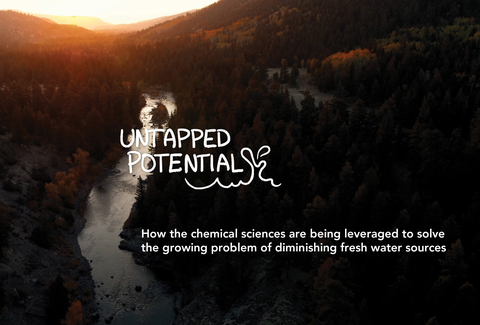
NEW YORK– Chemistry Shorts today announces the release of its newest film “Untapped Potential”, which highlights both the critical challenges and chemistry-inspired innovations in water supply, re-use, and purification. The nine-minute film features environmental and chemical engineering experts David L. Sedlak, PhD, Professor, University of California Berkeley, Meagan Mauter, PhD, Associate Professor, Stanford University, and William Tarpeh, PhD, Assistant Professor, Stanford University.
“Ensuring a safe water supply is one of the most compelling challenges humanity faces in the 21st century. With a clear narrative and stunning visuals, this film aims to enlighten and inspire by highlighting the game-changing solutions being developed in the chemical sciences. Targeting an audience of high school and college chemistry students, its appeal may be much broader,” says H. Scott Walter, President of the Camille and Henry Dreyfus Foundation Board of Directors. The film is available for immediate viewing and use in teaching free of charge on Chemistry Shorts YouTube channel.
“Untapped Potential” is the fourth addition to the well-received Chemistry Shorts film series presented by the Dreyfus Foundation. The series spotlights the positive impact of chemistry on modern life as scientists work to solve important problems and create new opportunities that benefit humanity. Learn more about Chemistry Shorts and see all of the films and lesson plans in this series at chemistryshorts.org.
Chemistry Shorts recently received a major grant from the Gordon and Betty Moore Foundation. This partnership will increase the reach of the film series, allowing for at least six additional films to be produced over the next three years. “We are excited about this opportunity to promote a broader understanding and appreciation of the chemical sciences and hope it inspires a new generation of scientists and path-breaking scientific discoveries,” says Gary Greenburg, Program Officer at the Gordon and Betty Moore Foundation.

